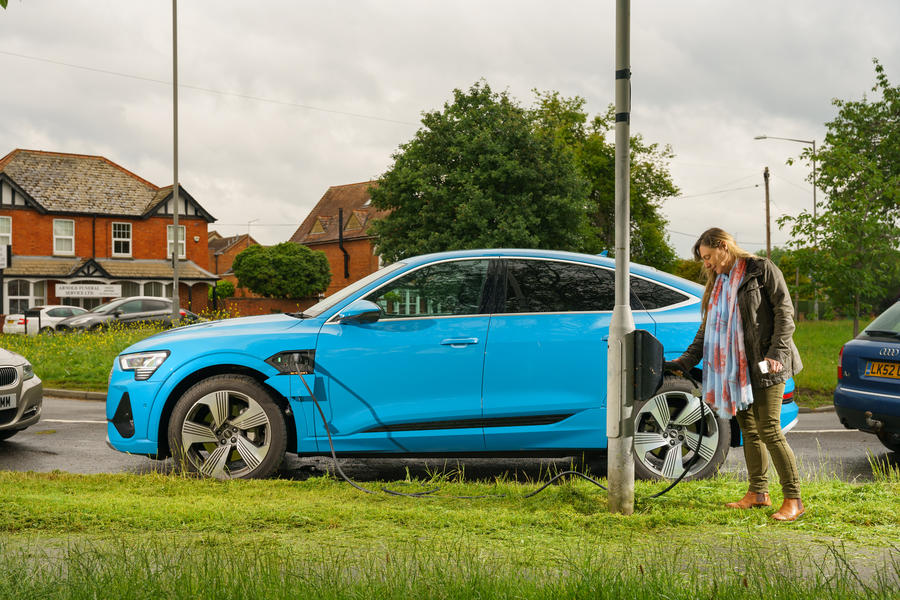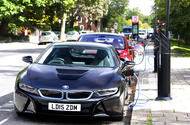More than 40% of UK households do not have access to off-street parking
AA says 40% of households could be left behind in EV transition as on-street charger schemes fail to meet demand
The government is failing to meet the UK’s needs for on-street electric car chargers, the AA has warned.
The UK’s electric vehicle infrastructure strategy, published in March, stated that a minimum of 70,000 on-street chargers will be required in residential areas by 2030 – when sales of new petrol and diesel cars will be banned.
As of 1 July 2022, just 2869 had been installed under the On-Street Residential Chargepoint Scheme (ORCS), with funding allocated for a further 9543. The ORCS provides local authorities with grants to install on-street chargers in areas where off-street parking is not available.
According to a statement from the AA, this means “there are huge black holes across the country where drivers without dedicated off-street residential parking would be reliant on the public charging network”.
As of March 2022, more than 40% of households in the UK did not have access to off-street parking.

Jack Cousens, head of roads policy for the AA, said: “The transition to electric needs to convince people that they can easily find a charge, but we need a mix of charging speeds to make life simple for everyone.
“But there are huge swathes of the country without any on-street charging and that needs to be rectified urgently.”
Cousens added: “So much focus has been placed on the rapid and ultra-rapid network but many will be crying out for action closer to home.”
In response, a spokesperson for the Department for Transport told Autocar: “We’ve committed £2.5bn to accelerate the rollout of zero emission vehicles and charging infrastructure across the country, ensuring the transition is as simple as possible for motorists, as we take steps towards a greener transport future.
“As these latest statistics show, we’ll be funding thousands more chargepoints across the country – adding to the thousands that are already installed – to help drivers become even more confident in making the switch to electric vehicles.”
A spokeperson for Ubitricity, which specialises in installing chargers into existing roadside furniture (including lamp-posts), said to Autocar: “We aim to install 50,000 on-street chargers in the UK by the end of 2025, as we believe convenient, near home, EV charging needs to be available to all.
“Unless there is faster growth of on-street chargers, those without driveways or private parking are essentially locked out of the move to more sustainable transport.
“The UK government acknowledges this need, however the process of local councils selecting EV charging network suppliers and enabling them to implement on-street infrastructure needs to be accelerated.”
According to data from EV charging app Zap-Map, there were 33,281 public charge points in the UK at the end of July. It estimates there are an additional 400,000 private chargers installed at homes and workplaces across the UK.
The government is currently targeting a tenfold increase in the number of public charge points (to 300,000) by 2030, courtesy of a £1.6bn investment.
Most of this sum (£950m) has been earmarked for the installation of 6000 rapid charging points across the UK’s motorway network.
Some £450m was allocated to the development of the on-street charging infrastructure.
Source: Autocar
